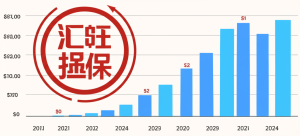
The U.S. Treasury’s Strategic Strike Against Cambodia’s Huione Group: Unpacking a $4B Money Laundering Network
—
Introduction: A Landmark Move Against Illicit Finance
The U.S. Department of the Treasury has escalated its global anti-money laundering (AML) efforts by targeting Huione Group, a Cambodian financial entity accused of facilitating over $4 billion in illicit transactions. This action, spearheaded by the Financial Crimes Enforcement Network (FinCEN), marks one of the most aggressive uses of Section 311 of the USA PATRIOT Act to sever a foreign institution from the U.S. financial system[1][5]. The move reflects growing concerns about Southeast Asia’s role in transnational organized crime and cyber-enabled fraud[4].
—
Huione Group’s Alleged Criminal Ecosystem
Operational Scale and Methods
Huione Group operates as a shadow financial network, offering payment processing, currency exchange, and digital asset services through subsidiaries like Huione Pay[3][4]. According to FinCEN, its infrastructure supports scams ranging from romance fraud to cryptocurrency-based money laundering, with transactions routed through shell companies and encrypted platforms like Telegram[1][2].
– Cryptocurrency Integration: Huione Pay has processed nearly $1 billion in stablecoin transfers, including funds linked to Houthi-affiliated crypto addresses sanctioned by OFAC in April 2025[3][4].
– Geographic Reach: The group serves clients across Southeast Asia, leveraging Cambodia’s lax regulatory environment to evade detection while maintaining correspondent accounts globally[1][5].
The $4B Laundering Mechanism
While exact figures remain contested, FinCEN asserts that Huione’s infrastructure processes billions annually for cybercrime syndicates operating “scam centers” in Cambodia and Myanmar[4]. These centers exploit victims through fake investments, impersonation schemes, and crypto ransom demands—a model detailed in recent UNODC reports as part of an underground banking resurgence post-pandemic[4].
—
FinCEN’s Proposed Special Measures: Breaking Down the NPRM
Published on May 1, 2025, FinCEN’s notice proposes two critical actions under Section 311:
This approach mirrors past measures against North Korean banks but represents FinCEN’s first major AML action targeting a Cambodian entity since the crackdown on casino-related laundering in 2020.
—
Implications for Global Financial Security
Impact on Cryptocurrency Markets
Huione-linked VASPs (virtual asset service providers) have funneled funds via Tron-based USDT wallets—a method increasingly adopted by groups like Ansarallah (the Houthis)[3][4]:
| Entity | Crypto Asset | Network | Total Inflows |
|—————–|————–|———–|—————|
| Ansarallah | USDT | Tron | ~$900M |
| Huione Pay | USDT | Multiple | ~$964M* |
*_Between Nov 2023-Jan 2024_[3]
This overlap underscores how stablecoins are becoming tools for both state-sponsored actors and criminal enterprises.
Regional Consequences for Southeast Asia
Cambodia risks being labeled a “high-risk jurisdiction” if it fails to dismantle scam hubs enabled by entities like Huione Group—a status that could deter foreign investment and trigger secondary sanctions against local banks.
—
Challenges Ahead: Enforcement Gaps & Technological Arms Race
While cutting off correspondent access disrupts traditional banking channels, experts warn that decentralized finance (DeFi) platforms could absorb illicit flows unless regulators adopt blockchain analytics tools at scale. Recent sanctions against Tron addresses demonstrate progress but also highlight vulnerabilities in tracking cross-chain swaps and privacy coins.
—
Conclusion: A Turning Point or Temporary Setback?
FinCEN’s action signals unprecedented coordination between AML authorities and blockchain investigators—yet success hinges on three factors: Cambodia’s willingness to prosecute domestic enablers; private-sector adoption of AI-driven transaction monitoring; and global alignment on regulating stablecoin issuers. Without these steps,Huioni-like networks will continue evolving faster than defenses can adapt.
資料來源:
[1] www.fincen.gov
[2] www.law360.com
[3] www.elliptic.co
[4] www.unodc.org
[5] www.coindesk.com
Powered By YOHO AI




